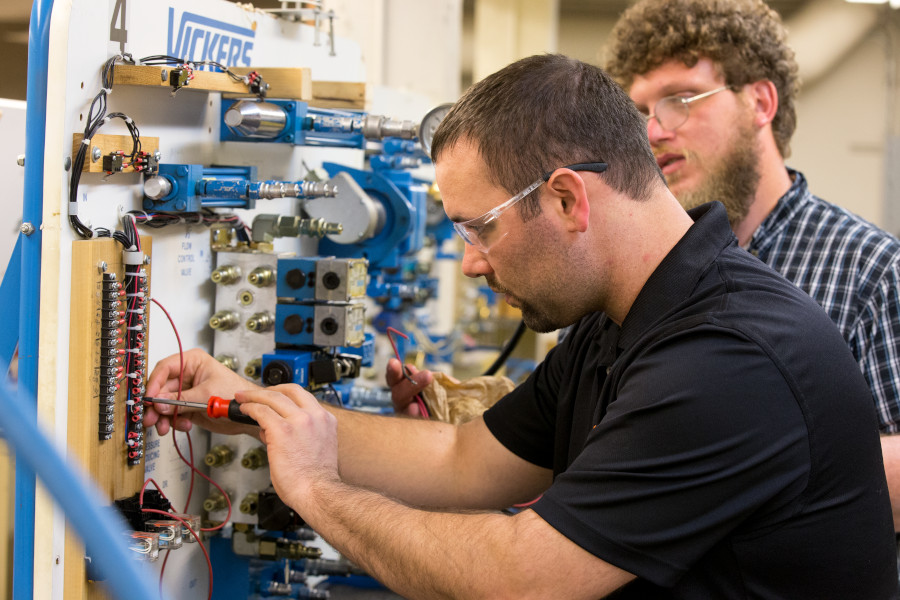Canada is one of the most popular destinations for immigrants seeking job opportunities in various fields, including electrical engineering. The country’s diverse economy and growing technology sector offer a wide array of positions for skilled professionals from around the world. Electrical engineers play a vital role in industries such as telecommunications, energy, manufacturing, and electronics, making their expertise highly valued in Canada. Moreover, with the increasing demand for innovation and sustainability, the need for electrical engineers is expected to grow, offering significant career prospects for immigrants.
For individuals who are not Canadian citizens or permanent residents, Canada provides several pathways to secure employment in electrical engineering, with visa sponsorship opportunities playing a key role. Employers in Canada are often willing to sponsor work visas for skilled foreign workers in sectors where there is a demand for expertise. This article provides an overview of electrical engineering jobs in Canada, the skills and experience required for entry-level positions, regions offering high salaries, and details on visa options and how immigrants can apply for these positions.
Entry-Level Skills and Experience Required
When applying for electrical engineering positions in Canada, entry-level candidates are generally expected to possess a solid foundation in electrical engineering principles and practices. A bachelor’s degree in electrical engineering or a related field is typically the minimum requirement. Along with this, employers often look for candidates with certain technical skills, including proficiency in circuit design, electrical systems analysis, and familiarity with various electrical engineering software tools such as AutoCAD, MATLAB, or ETAP.
In addition to educational qualifications, employers value practical experience. Internships, co-op programs, and any previous work experience in engineering or related fields will enhance a candidate’s employability. Strong problem-solving abilities, communication skills, and an understanding of safety regulations in electrical systems are also important traits for entry-level engineers. As a result, while formal education is crucial, hands-on experience and a willingness to continuously learn and adapt to new technologies are equally significant in landing a job in this field.
Regions with the Highest Payment Structures
Canada offers various regions where electrical engineering professionals can find lucrative job opportunities. Here are the top 8 regions with the highest payment structures for electrical engineers:
- Alberta
- Average Salary: $85,000 – $120,000
Alberta’s thriving oil and gas industry offers high-paying jobs for electrical engineers, especially in the energy sector. Cities like Calgary and Edmonton are key hubs for electrical engineering professionals.
- Average Salary: $85,000 – $120,000
- Ontario
- Average Salary: $70,000 – $110,000
Ontario, home to Toronto, Canada’s largest city, offers a diverse range of engineering positions, particularly in technology, manufacturing, and automation industries.
- Average Salary: $70,000 – $110,000
- British Columbia
- Average Salary: $75,000 – $105,000
Vancouver is a major tech and energy hub, offering high-paying jobs for electrical engineers, particularly those specializing in clean energy and electrical grid management.
- Average Salary: $75,000 – $105,000
- Quebec
- Average Salary: $70,000 – $95,000
Quebec City and Montreal provide ample job opportunities, especially for engineers in aerospace, telecommunications, and electrical infrastructure development.
- Average Salary: $70,000 – $95,000
- Saskatchewan
- Average Salary: $80,000 – $100,000
With its focus on mining, energy, and agriculture, Saskatchewan is another region where electrical engineers can find well-paid positions, particularly in the renewable energy sector.
- Average Salary: $80,000 – $100,000
- Manitoba
- Average Salary: $70,000 – $95,000
Winnipeg, the largest city in Manitoba, has a growing technology and industrial sector, providing strong opportunities for electrical engineers.
- Average Salary: $70,000 – $95,000
- Nova Scotia
- Average Salary: $65,000 – $85,000
Halifax is the key city for electrical engineering jobs in Nova Scotia, with opportunities in construction, manufacturing, and telecommunications.
- Average Salary: $65,000 – $85,000
- Newfoundland and Labrador
- Average Salary: $80,000 – $100,000
The oil and gas industry in Newfoundland and Labrador requires electrical engineers for a variety of projects, offering competitive salaries.
- Average Salary: $80,000 – $100,000
Salary Expectations for Immigrants
Below is a table summarizing the salary expectations for electrical engineers across Canada, considering both entry-level and experienced professionals.
| Region | Entry-Level Salary | Mid-Level Salary | Senior-Level Salary |
|---|---|---|---|
| Alberta | $65,000 | $90,000 | $120,000 |
| Ontario | $60,000 | $80,000 | $110,000 |
| British Columbia | $58,000 | $85,000 | $105,000 |
| Quebec | $55,000 | $80,000 | $95,000 |
| Saskatchewan | $60,000 | $85,000 | $100,000 |
| Manitoba | $55,000 | $75,000 | $95,000 |
| Nova Scotia | $50,000 | $70,000 | $85,000 |
| Newfoundland & Labrador | $60,000 | $85,000 | $100,000 |
Summary:
Salaries for electrical engineers in Canada vary by region, with Alberta, Ontario, and British Columbia offering some of the highest compensation packages due to the demand in energy, technology, and manufacturing sectors. Entry-level electrical engineers can expect salaries starting from $50,000 to $65,000, while mid-level professionals earn between $70,000 and $85,000. Senior electrical engineers can earn upwards of $100,000, especially in specialized sectors.
Companies Hiring Electrical Engineers in Canada
Several prominent companies across Canada are actively hiring electrical engineers and often offer visa sponsorships to qualified immigrants. Some of these include:
- SNC-Lavalin
- Requirements: Bachelor’s degree in electrical engineering, experience in large-scale infrastructure projects. Visa sponsorship is available for skilled workers.
- Siemens Canada
- Requirements: Expertise in automation, energy systems, and electrical design. Siemens offers opportunities for immigrants with a proven track record in engineering innovation.
- General Electric (GE) Canada
- Requirements: Experience in power systems, electrical grids, or renewable energy. GE supports work visas for qualified international candidates.
- Bombardier
- Requirements: Experience in aerospace or transportation systems engineering. Bombardier frequently hires electrical engineers with specialized skills and offers visa sponsorship.
- ABB Canada
- Requirements: Experience in electrical power systems, industrial automation, or robotics. ABB is known for hiring globally, with a preference for candidates with experience in innovative energy solutions.
- Schneider Electric
- Requirements: Knowledge in energy management and automation. Schneider Electric offers various roles for electrical engineers and has programs to sponsor skilled immigrants.
- Hydro One
- Requirements: Experience in electrical grid management, energy distribution, and power systems. Hydro One actively hires engineers and supports visa sponsorship for foreign professionals.
- Westinghouse Electric Canada
- Requirements: Background in nuclear power systems and safety protocols. Westinghouse often recruits international engineers and provides visa sponsorship.
Visa Types and Options for Electrical Engineers
To work in Canada as an electrical engineer, immigrants must secure a valid work visa. The primary visa options include:
- Temporary Foreign Worker Program (TFWP):
This visa allows employers to hire foreign workers for temporary positions. It is common for Canadian employers to use this option when sponsoring skilled electrical engineers. - International Mobility Program (IMP):
The IMP allows certain foreign workers, including electrical engineers, to work in Canada without requiring a Labour Market Impact Assessment (LMIA). This is often used for high-demand occupations. - Express Entry System:
The Express Entry system is for skilled workers who wish to become permanent residents in Canada. Electrical engineers can apply through the Federal Skilled Worker Program (FSWP) if they meet the qualifications. - Provincial Nominee Program (PNP):
Some provinces, such as Alberta and British Columbia, offer PNPs for skilled workers, including electrical engineers. Through this program, immigrants can be nominated for permanent residency based on regional labor market needs.
Where to Find Electrical Engineering Job Opportunities in Canada
Job opportunities for electrical engineers in Canada can be found through several online platforms:
- Job Bank Canada (www.jobbank.gc.ca): The Government of Canada’s official job portal, listing thousands of engineering positions, including electrical engineering roles across the country.
- Indeed Canada (www.indeed.ca): A widely used job search engine that lists numerous electrical engineering jobs, often with the option to filter by employer-sponsored visa positions.
- LinkedIn (www.linkedin.com): A professional networking site where many companies post job openings for electrical engineers, including those offering visa sponsorship.
- Glassdoor (www.glassdoor.ca): Offers job listings, company reviews, and salary data, making it easier for candidates to find and assess electrical engineering job opportunities.
- Workopolis (www.workopolis.com): A popular Canadian job portal with a variety of electrical engineering roles, including entry-level and senior positions.
How to Apply for Electrical Engineering Jobs as an Immigrant in Canada
Applying for electrical engineering jobs in Canada as an immigrant involves several key steps:
- Prepare Your Resume and Cover Letter: Tailor your resume to Canadian standards, highlighting relevant skills, experience, and qualifications. Include a well-crafted cover letter that explains your interest in the role and your immigration status.
- Research Employers and Job Listings: Use job boards like Job Bank and LinkedIn to research companies offering electrical engineering positions that align with your skills and qualifications.
- Submit Your Application: Follow the application instructions provided by employers. If the job offer includes visa sponsorship, ensure that you indicate your need for work authorization.
- Prepare for Interviews: If selected for an interview, be ready to discuss your technical knowledge, past work experience, and how you can contribute to the company’s projects.
- Visa Sponsorship Process: If you receive a job offer, the employer will guide you through the work visa application process. Be prepared to provide necessary documentation, including proof of education, experience, and work authorization.
Conclusion
Electrical engineering offers numerous opportunities in Canada, especially for skilled immigrants who can contribute to the country’s growing sectors such as energy, technology, and manufacturing. By understanding the required skills, regional salary differences, and visa options, immigrants can make informed decisions and increase their chances of securing a job in this competitive field. With the right qualifications and persistence, electrical engineers can build successful careers in Canada, benefiting from both professional growth and the high quality of life the country offers.


